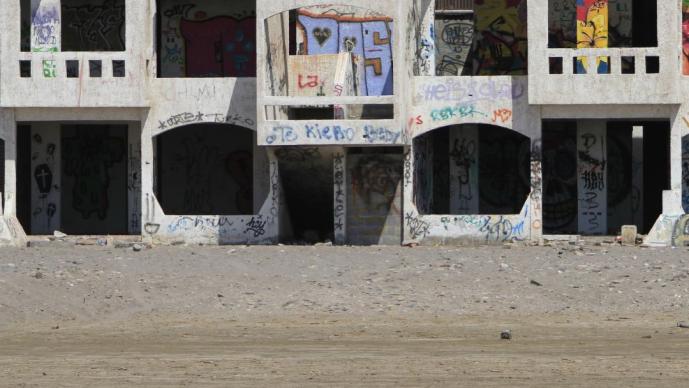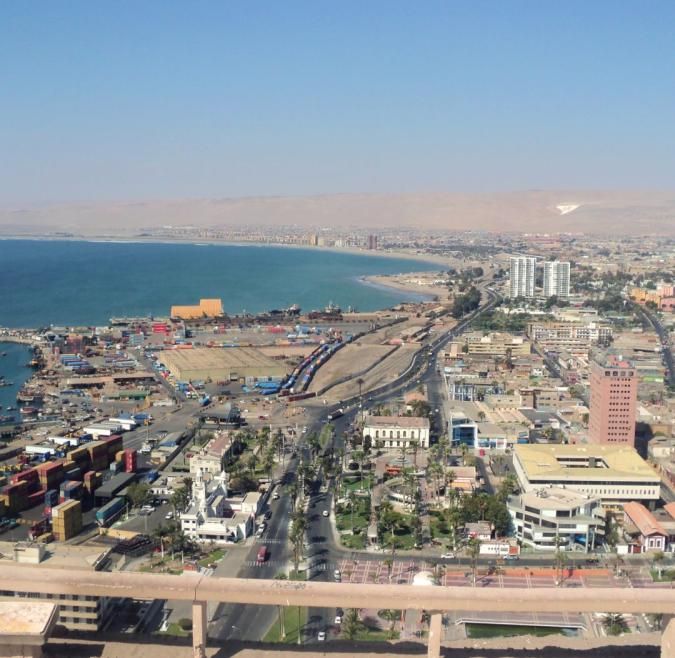Embedded Spring: Industrial Landscapes: heritage of innovation, infrastructure, and extraction in Chile.
The Program
This Spring-embedded program offers a focused examination of the legacies of industrialization in the Americas. In the northern Chilean city of Arica, we explore different phases of 'industry' across archaeological, colonial, historical, and contemporary perspectives to discuss and put into practice how these ideas and experiences become heritage.

Program Locations

Chile
Arica
Arica, in northern Chile, is only 11 miles from the border with Peru. It is an international port city that also serves a free port for Bolivia, making this area simultaneously remote and internationally significant. Arica has an extremely dry climate, with almost no rainfall, and its landscape is marked by the Morro Arica hill, striking surfing beaches, and two valleys that dissect the famous Atacama Desert. Arica features cultural resources as diverse as archaeological remains that are 10,000 years old, and San Marcos Cathedral, designed in 1876 by French architect Gustave Eiffel.
Academics
This international experience is ideal for students interested in global and transnational issues, global culture, Latin American culture, and, naturally, cultural heritage and preservation methods from a global comparative perspective. Arica is off the beaten path so this is a great opportunity to connect to a different but comparable experience with industrial landscapes, something that will be particularly interesting to NJ natives.
This course combines traditional classroom lectures and discussion that foster a rich understanding of crucial concepts, and a local fieldtrip and a Study Abroad experience that allows students to test and perfect these concepts in various contexts through experiential learning.
This course and its accompanying on-campus seminar will count towards all the Cultural Heritage and Preservation Studies degree programs.
Housing and Meals
Students will share twin rooms in Hotel Apacheta (breakfast included), a beachfront hotel 15 min walk from the center of town. All but one group dinner are included in the cost of the trip.
Financial Information
Program Costs
| All students | |
|---|---|
| Program Cost | $1,640 |
Program Cost includes:
- 1 credit UG-Tuition. Graduate students, part-time or online students will be charged for the 1 credit separately by their department.
- Housing
- Most meals
- Excursions
- Administrative Fees
- Emergency Medical Access Abroad
Out-of-Pocket Costs
| Airfare | $1,300 |
| Additional meals | $40 |
| Books and Classroom Materials | $50 |
| Personal Expenses | $100 |
| Total | $1,490.00 |
Out-of-Pocket Cost includes:
The above costs are estimations and represent the known out-of-pocket costs students encounter during their time abroad.
Some of these expenses will be paid for prior to going abroad, such as an airline ticket, while some of these expenses, such as meals and personal expenses, will be paid in-country as part of your daily expenses. As you plan, you will need to budget these costs and spend wisely throughout your time abroad.

